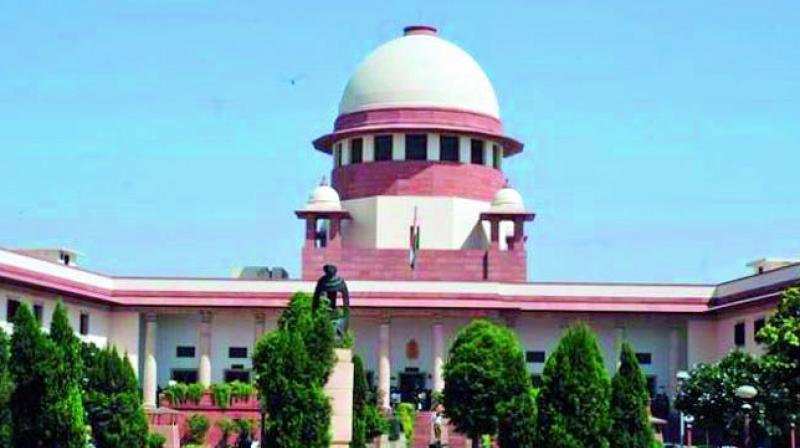Supreme Court says Lt Governor has primacy under the Constitution
The HC also held that the then L-G, Najeeb Jung was its administrative head and all decisions will have to be taken with his consent and concurrence.

New Delhi: The Supreme Court on Thursday orally observed that the Lt Governor of Delhi has overriding powers under Article 239 of the Constitution and that the Delhi government could not claim absolute executive powers in the administration of the Union Territory.
A five-judge Constitution bench of Chief Justice Dipak Misra and Justices A.K. Sikri, A.M. Khanwilkar, D.Y. Chandrachud and Ashok Bhushan, made this preliminary observation when senior counsel Gopal Subramanium, appearing for the Kejriwal government argued that the Lt Governor (L-G) had created a situation where no bureaucrat is obeying directions of Ministers and Chief Minister Arvind Kejriwal.
The L-G he said was holding meeting separately with the officials without ministers. The bench commenced its hearing on a batch of special leave petitions filed by the Delhi government against a judgement of the Delhi High Court which held that the L-G was the administrative head of the capital and was not bound by the aid and advice of the Chief Minister or council of ministers.
The HC also held that the then L-G, Najeeb Jung was its administrative head and all decisions will have to be taken with his consent and concurrence.
Assailing this finding Mr Subramanium said the HC verdict subverted the democratic governance structure put by a constitutional arrangement, which recognises Delhi’s special powers despite being a Union Territory. He argued that Article 239 AA could not be used by the Lt Governor to frustrate the constitutional mandate for an elected government in Delhi. The bench said the provision is an exception in the Constitution and prima facie it appears that overriding powers are given to the LG through Article 239AA. Arguments will continue on November 7.

